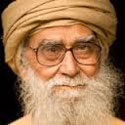
By Maulana Wahiduddin Khan for New Age Islam
21 April, 2015
Many people believe that in order to touch the Quran, you must first have done wazu or a particular form of ablutions. If you haven’t done this, they say, you cannot touch the Quran.
But this belief is baseless. It is not mentioned in the Quran. It is completely a product of Muslim jurisprudence that emerged in a later period, after the Prophet. In this period, many people embraced Islam. They brought along with them their mindsets that were shaped by their previous religions. Many of them learnt the Arabic language and became religious scholars.
Several of these converted Muslim scholars played a key role in compiling the corpus of fiqh or Muslim jurisprudence. In line with their ancient religious mentality, they unconsciously introduced into the Islamic tradition many issues that were not present at the time of the Prophet’s Companions. Furthermore, in order to support these self-created fiqhi or jurisprudential issues, they engaged in wrong interpretation of Quranic verses. For instance, killing people who abuse the Prophet cannot be proven from the Quran, but yet through erroneous interpretations, the fuqaha or Muslim jurisprudents introduced this practice into the Islamic tradition and claimed that such people should be slain.
One such fiqhi issue is the claim that it is not permissible to touch the Quran without first performing wazu. This claim is an invention of the Muslim fuqaha who had previously belonged to other religions. It has no relation at all with Islam. If it had been an Islamic commandment, the Quran would certainly have mentioned it. But there is no such verse in the Quran. Those who insist on this, claim to deduce it from these Quranic verses:“… this is indeed a noble Quran, in a well-guarded preserved Book, which none can touch except the purified.”(56:77-79)
These verses convey a fact rather than enjoin a commandment. This fact is related to angels and not human beings.
The erroneous claim of the fuqaha acted as a major stumbling block to dawah work in the past. Moreover, the words that appear in this verse are “illa al-mutahharun”(the purified ones), and not “illa al-mutawazziun” (those who have performed wazu, or ablutions). That is to say, according to the verse only pure people touch the Quran, it does not say that only people who have done wazu touch the Quran.
The truth, according to the correct interpretation, is that in the above verse “the purified” is used for angels, who by virtue of the way they have been created are always pure, and not human beings who become pure by doing wazu.

No comments:
Post a Comment